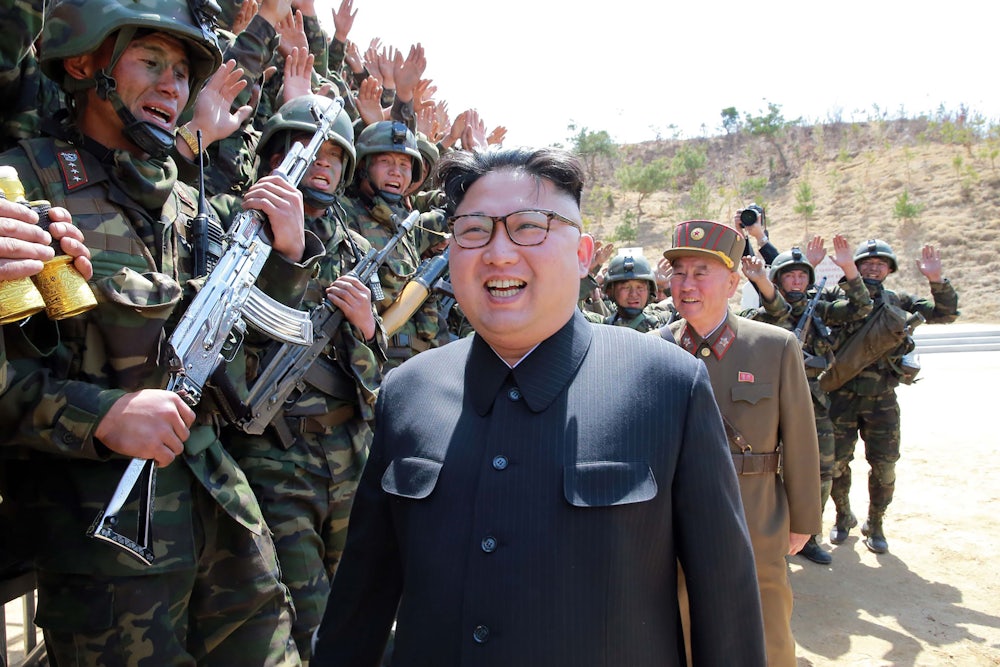On Thursday evening, Chung Eui-yong, South Korea’s national security adviser, announced that Donald Trump had agreed to hold talks with Kim Jong-un regarding the country’s nuclear program by May. It’s a stunning development. Not only has no sitting president of the United States met with a North Korean leader, Trump and Kim have spent the last 15 months calling each other names and ratcheting up tensions. Trump called Kim “little rocket man” last year; Kim returned the favor by referring to the septuagenarian president as a “mentally deranged dotard.”
Some have already criticized the move. But, given the risk of nuclear war, talks are more likely to produce a decrease in tensions than no talks. Still, a positive outcome depends on Trump’s ability to seize the moment and turn this momentary thaw into progress. Unfortunately, anyone who has watched Trump negotiate with Democrats over sensitive issues like gun control and immigration shouldn’t have much hope that he will display the subtlety or sensitivity necessary to create meaningful change. Trump, moreover, has never shown any interest in anything less than total victory in either his business or political negotiations. That simply isn’t possible in international diplomacy and it certainly isn’t possible when it comes to North Korea’s nuclear program.
Given the distance between the two sides, and the unlikelihood that North Korea will fully denuclearize, a lasting agreement does not seem possible. Plus, each side views the talks differently. For the United States, the talks are a means to an end, a way to pressure or coax North Korea into giving up its nuclear program. For North Korea, the talks are an end in and of themselves: The country has long desired the legitimacy a visit from a sitting U.S. president would bring. And if its nuclear arsenal ultimately brought that legitimacy, why would it give it up?
